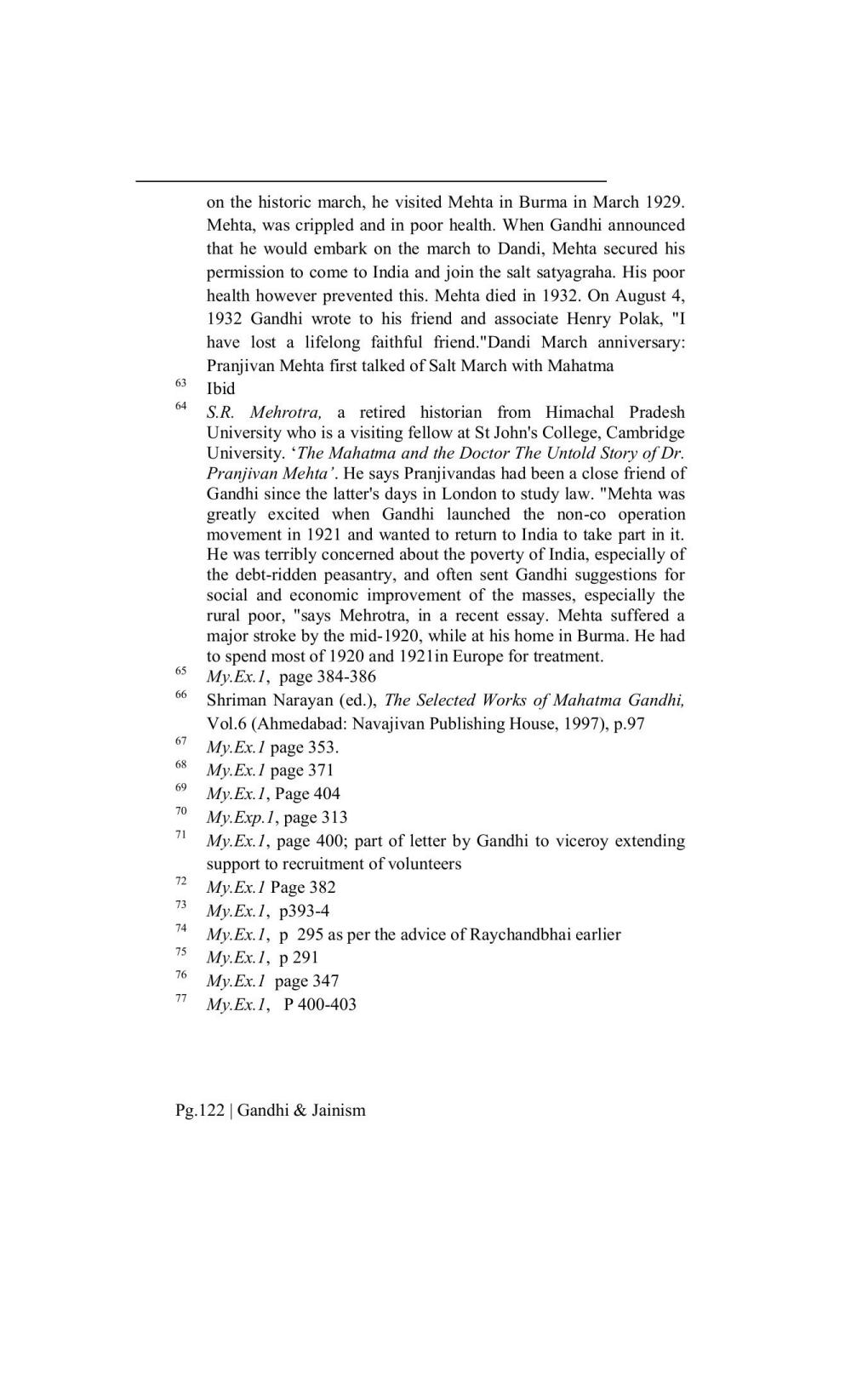________________
on the historic march, he visited Mehta in Burma in March 1929. Mehta, was crippled and in poor health. When Gandhi announced that he would embark on the march to Dandi, Mehta secured his permission to come to India and join the salt satyagraha. His poor health however prevented this. Mehta died in 1932. On August 4, 1932 Gandhi wrote to his friend and associate Henry Polak, "I have lost a lifelong faithful friend. "Dandi March anniversary: Pranjivan Mehta first talked of Salt March with Mahatma
Ibid
64
S.R. Mehrotra, a retired historian from Himachal Pradesh University who is a visiting fellow at St John's College, Cambridge University. "The Mahatma and the Doctor The Untold Story of Dr. Pranjivan Mehta'. He says Pranjivandas had been a close friend of Gandhi since the latter's days in London to study law. "Mehta was greatly excited when Gandhi launched the non-cooperation movement in 1921 and wanted to return to India to take part in it. He was terribly concerned about the poverty of India, especially of the debt-ridden peasantry, and often sent Gandhi suggestions for social and economic improvement of the masses, especially the rural poor, "says Mehrotra, in a recent essay. Mehta suffered a major stroke by the mid-1920, while at his home in Burma. He had to spend most of 1920 and 1921 in Europe for treatment. My.Ex.1, page 384-386 Shriman Narayan (ed.), The Selected Works of Mahatma Gandhi, Vol.6 (Ahmedabad: Navajivan Publishing House, 1997), p.97 My.Ex. 1 page 353. My.Ex. 1 page 371 My.Ex.1, Page 404 My.Exp.1, page 313 My.Ex.1, page 400; part of letter by Gandhi to viceroy extending support to recruitment of volunteers My.Ex. 1 Page 382 My.Ex.1, p393-4 My.Ex.1, p 295 as per the advice of Raychandbhai earlier My.Ex.1, p 291
My.Ex. 1 page 347 77 My.Ex.1, P 400-403
Pg.122 Gandhi & Jainism




